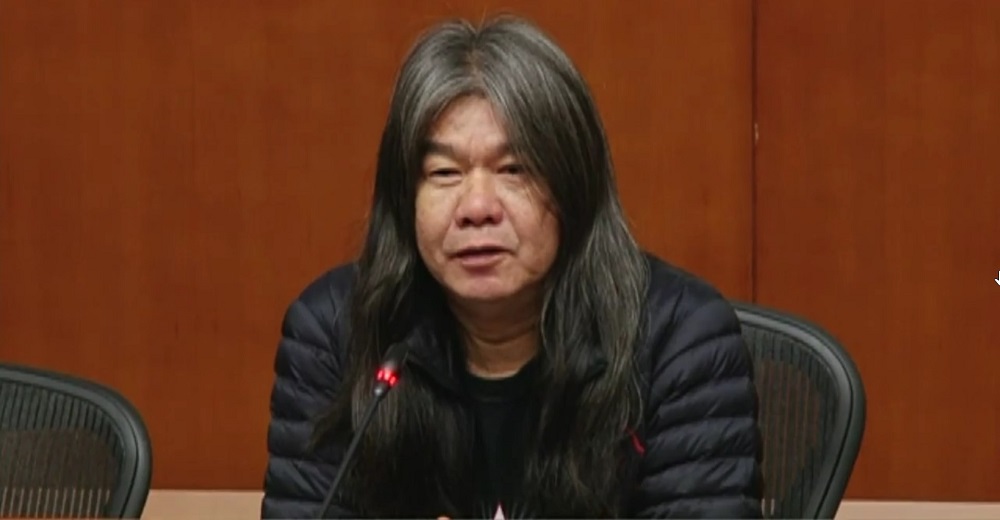Pro-democracy lawmaker “Long Hair” Leung Kwok-hung announced on Wednesday that he will enter the chief executive race if he receives 37,790 unofficial nominations from members of the public, representing one per cent of the registered electorate.
To become an officially-nominated candidate, however, Leung will need to receive nominations from at least 150 of the 1,200 members of the small-circle Election Committee.

“I don’t think pro-democracy electors should vote for any of the four candidates because, simply, none of them can represent the standpoint of the pro-democracy camp,” said Leung at a press conference.
The four main candidates who have declared their intentions are: former chief secretary Carrie Lam Cheng Yuet-ngor, former finance secretary John Tsang Chun-wah, retired judge Woo Kwok-hing, and lawmaker Regina Ip.
“I don’t believe I’m the best candidate for the pro-democracy camp,” Leung claimed. “But because there are none, I’ve decided to come out and run.”
He later added that he had earlier asked pro-democracy legislator Eddie Chu Hoi-dick and former legislator Audrey Eu Yuet-mee to run for the city’s top job. But Chu was not yet 40 years old – the minimum age to become chief executive – and Eu refused.
Quoting Cuban revolutionary Fidel Castro and English reformist Jeremy Bentham, Leung said he would run “to provide the greatest happiness to the greatest number of people.”
A choice for the public
Pro-democracy legislators Eddie Chu, Lau Siu-lai, Raymond Chan Chi-chuen and Nathan Law Kwun-chung said that they would campaign alongside Leung in order to gain the 37,790 unofficial public nominations.
Leung said that if he does not receives this number, he will not run: “Even if it’s a small-circle election, it will now be a choice for the [public] electors.”

He also said that if electors voted for John Tsang, they would be giving him the mandate to implement the controversial Article 23 security law. Tsang would also have the mandate to implement political reform based on Beijing’s 2014 decision barring open elections.
60-year-old Leung came from a working-class background and has been a legislator since 2004.
He is currently one of four pro-democracy lawmakers facing a legal challenge from the government, which aims to oust him from his seat because of the way in which he took his oath of office.
Chief executive civil referendum
To become an official candidate for chief executive, Leung must receive nominations from at least 150 of the 1,200 members of the Election Committee, Hong Kong’s chief executive electoral college. Many committee members in previous elections have been accused of following Beijing’s orders in casting their ballots.
This year, the pro-democracy camp, which has around 300 seats in the Election Committee, said it will consider using its seats to nominate a candidate who receives 37,790 unofficial nominations from the public, or one per cent of the registered electorate in Hong Kong.
This unofficial public nomination campaign, named the “chief executive civil referendum,” was proposed by the University of Hong Kong law professor Benny Tai Yiu-ting. It began on Tuesday, and ends on February 22.

The official nomination period for Election Committee members runs from February 14 to March 1. Voting day is scheduled for March 26.
